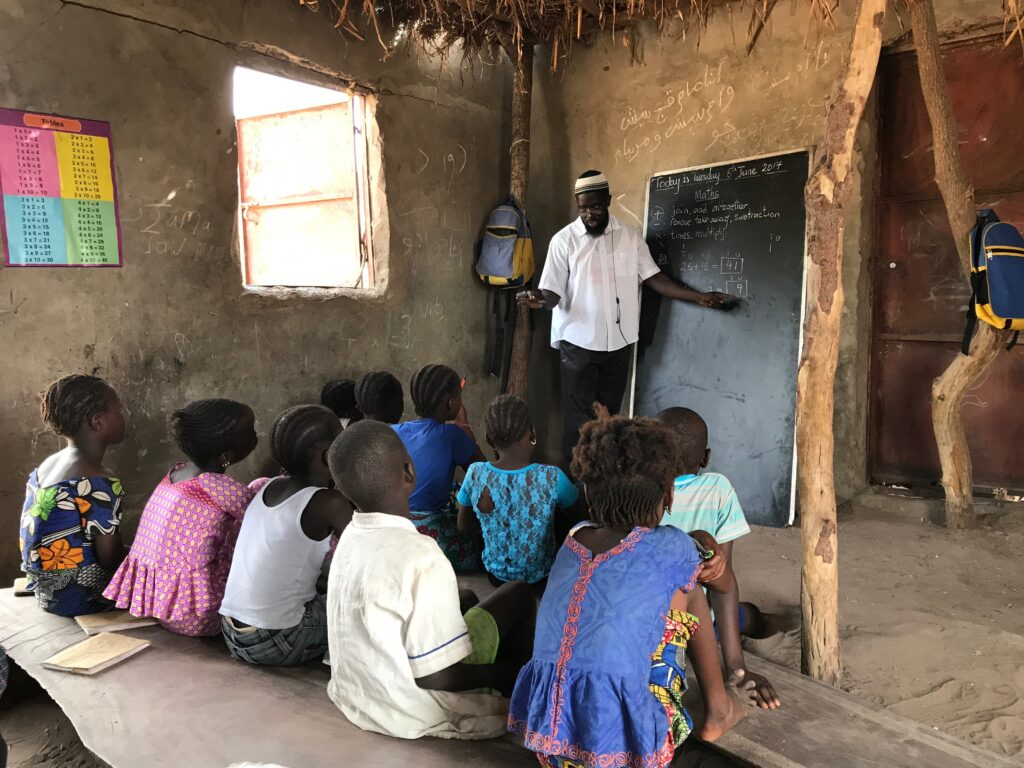Abu Dhabi: Wednesday, November 5, 2025
Several childhood experts and specialists from Columbia University emphasized the importance of the UAE initiative launched by the General Secretariat of the Khalifa Award for Education, an institution under the Erth Zayed Philanthropies. This initiative, the first of its kind globally, aims to highlight the best scientific and applied practices related to early childhood care and empowerment worldwide. Experts in childhood development and the economics of education at Columbia University, United States, noted that their project, “Developing Reading and Math Skills in Low-Income Environments,” which was implemented in the Gambia by the Effective Child Protection Intervention Organization, has received the Khalifa International Award for Early Learning in the most recent session. This prestigious award represents a qualitative leap in combating learning poverty in low-resource rural areas. It opens up broad prospects for many governments that face challenges in providing a suitable learning environment for children in an early educational stage, especially in poor and remote areas where such capabilities may not be available.
This came during a scientific symposium organized by the Award’s secretariat, featuring presentations by Professor Steven Barnett, Awarding Committee Chairman and Professor of Early Childhood at Rutgers University in the United States; Dr. Alexander Ebel, Associate Professor of Economics of Education at Columbia University; and Professor Nishith Prakash, Professor of Public Policy and Economics at Northeastern University, United States of America, and members of the project’s organizing committee: Fatou Ben Jobe, CEO of the Effective Intervention for Child Protection organization; Modou Bah, Project Director; and Ali Oujiba and Almandi, project members.
Professor Alex expressed Columbia University’s pride in its research and applied projects, which won the Khalifa International Award for Early Learning last year. He noted that the project, which focuses on developing reading and mathematics skills among children in low-income environments, is a leading global initiative in this field. The project was implemented in India, Guinea-Bissau, and The Gambia, and focused on identifying weaknesses in reading and mathematics skills among children in these environments, as well as addressing the need for teacher training and providing a stimulating classroom environment that encourages children to master these skills.
For his part, Professor Nishith Prakash expressed his appreciation for the initiative aimed at improving students’ reading and mathematics skills in low-income environments, emphasizing the importance of engaging families and local communities in implementing such programs to enhance their chances of success, especially in light of the challenges faced in remote and underprivileged areas.
The speakers at the symposium, members of the team, highlighted the importance of their project, which has achieved positive results for the targeted children by focusing on field impact and scalable outcomes, as well as specific experiences in building educational capacity. This includes developing curricula tailored to the local context, training teachers, and providing resources that empower them, the local community, and parents to ensure adherence to program effectiveness standards.
The expert speakers emphasized that the successful implementation of this project represents a qualitative leap forward in what early childhood education can achieve in these areas. This is accomplished through strong partnerships among the various elements of the educational process, facilitating recruitment and oversight by the local community. Additionally, in turn, it increases children’s enrollment and attendance rates and encourages greater parental involvement and commitment to the daily operational phases, ultimately leading to the desired outcomes.
At the symposium’s conclusion, the experts commended the pioneering role of the Khalifa International Award for Early Learning in highlighting their project, which represents a forward-looking vision for investing in early childhood education and effective learning environments that can positively impact students’ lives, even in low-income settings. They noted that winning the award reinforces their project’s mission as a leading global model that can be scaled up and implemented in similar circumstances.
